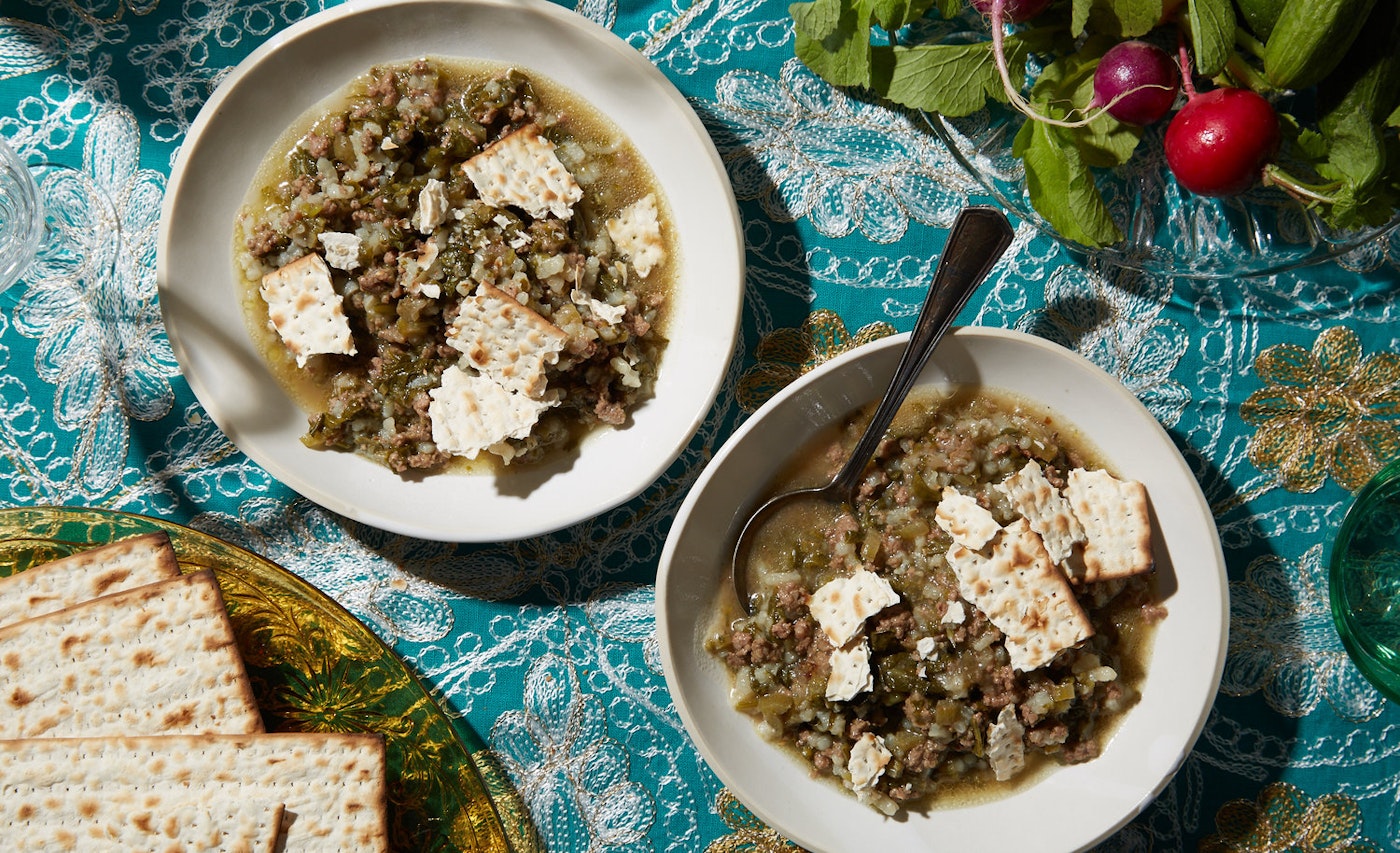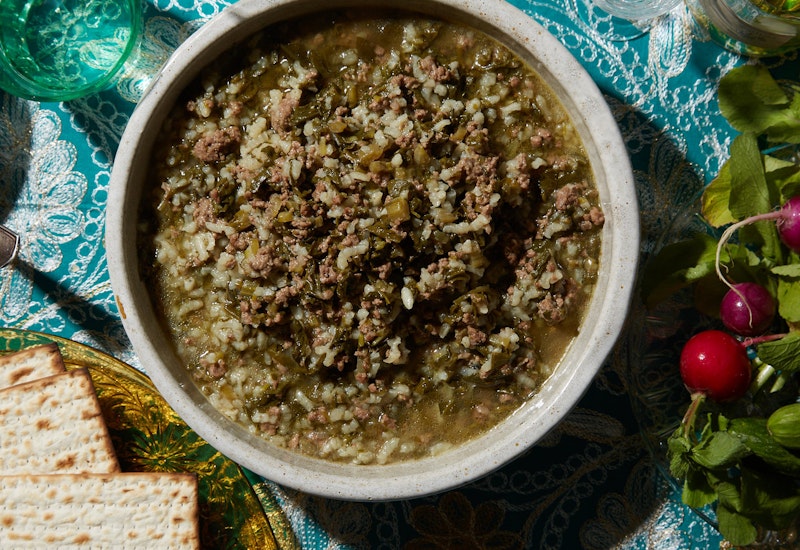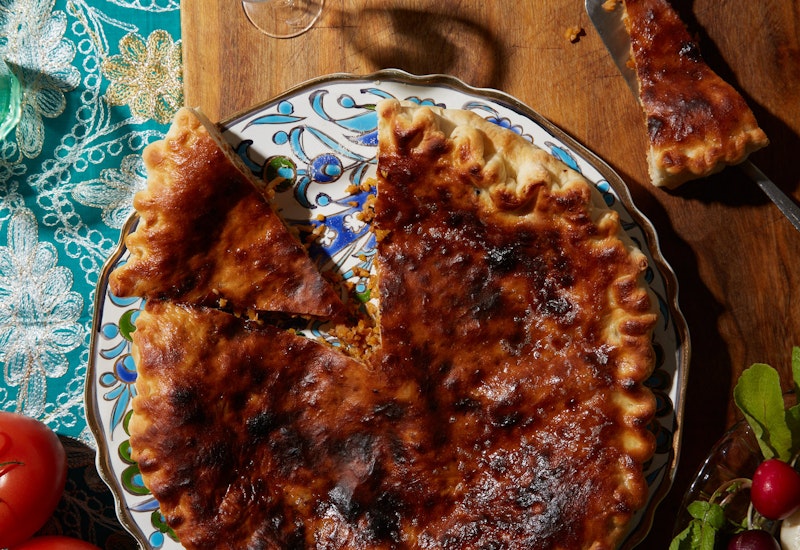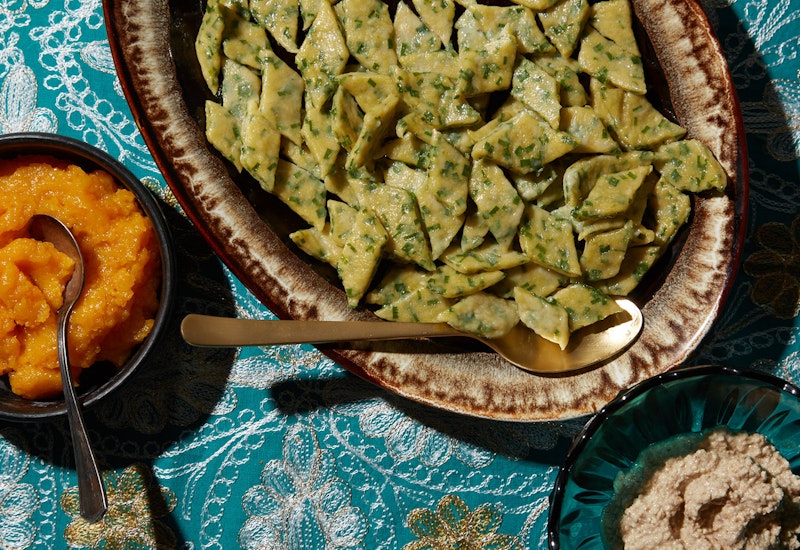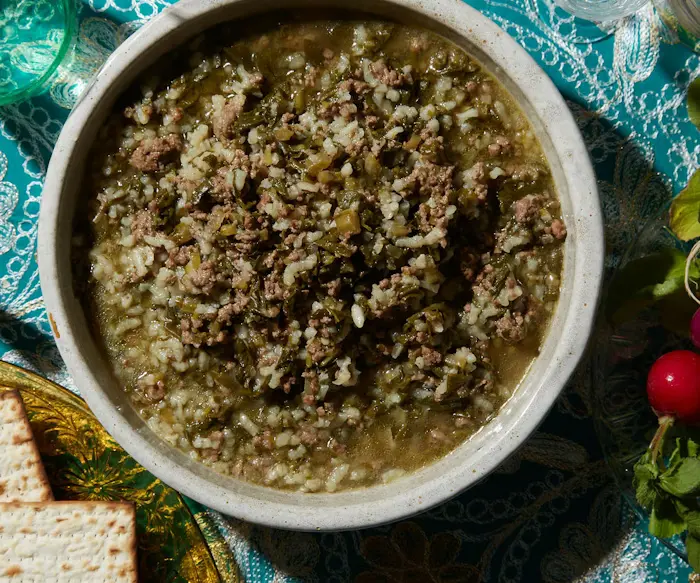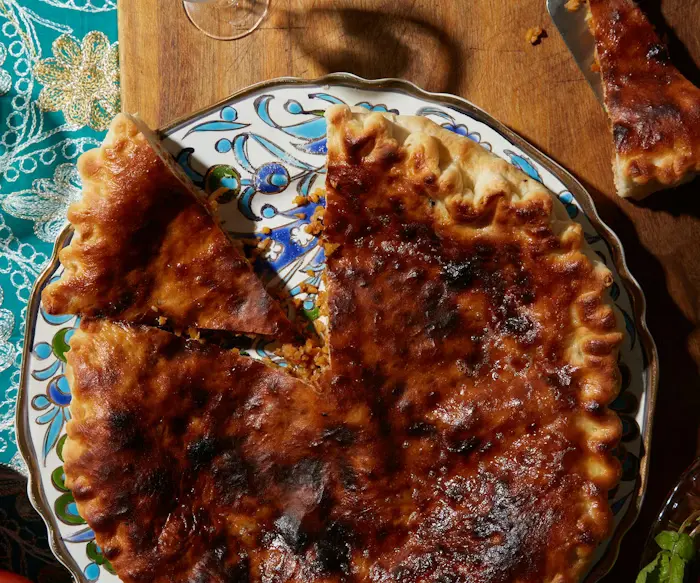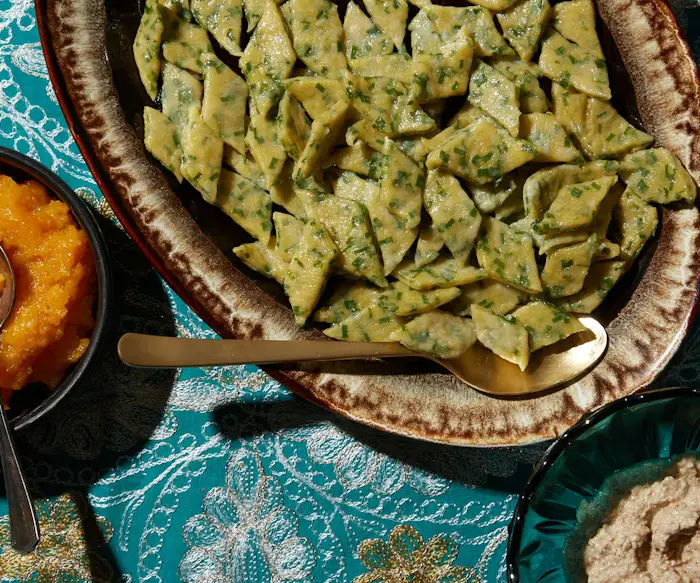Read more about Alona Eisenberg in “Finding a Route to the Kavkaz Mountains in the Kitchen” and try her recipes for ingar poli (Kavkazi pasta with walnut sauce), kurze (Kavkazi beef-filled dumplings with garlic vinegar), and chudo (Kavkazi flatbread stuffed with pumpkin).
When Alona Eisenberg was growing up in Makhachkala, a city in Dagestan along the western coast of the Caspian Sea, there was a large community of Kavkazi or mountain Jews in the region. Her family lived in that community, but largely as secular Jews. “I didn’t know at all [about] Shabbat,” she says. “The only Jewish holiday I knew was Pesach.”
Before the holiday, her family would visit a rabbi, who was also a shochet (a person who slaughters meat according to Kosher tradition and laws) to purchase meat for the holiday. The first night was always marked in their family with steaming bowls of tara, a soup of ground beef or lamb with rice, onions, cumin, and mallow or Swiss chard, topped with broken matzo. Alona remembers rushing to finish the soup in her bowl while the matzo was still crunchy.
Unlike other recipes cooked by Kavkazi Jews, like plump beef-filled dumplings called kurze, tara is one of the few that’s not prepared by other communities in the region. It is a uniquely Jewish dish, Alona explains. In some homes, the rice is left out or the meat is chopped instead of ground, and in Azerbaijan, Jewish families often add chestnuts to the recipe.
Alona learned to make the soup from her grandfather Matitya who raised her and her sisters after their mother died when Alona was just six-years-old. A soldier for 25 years, he was strict, an elegant dresser, and an avid tender of a vegetable garden at his dacha, or mountain cabin, where Alona would spend afternoons with him. His cooking was practical and simple.
When Alona makes tara, she says, she thinks of him.
